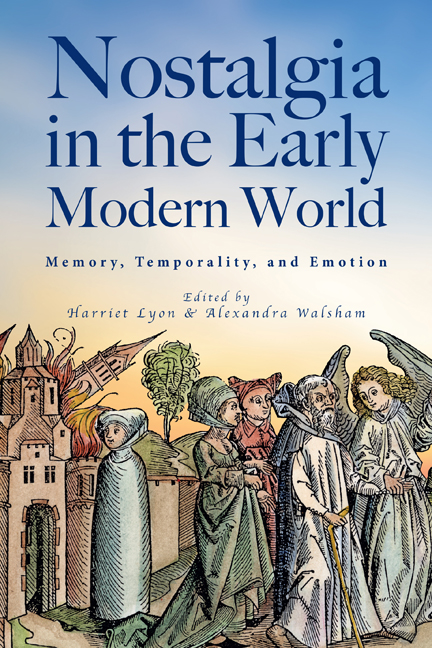2 - ‘That Antwerp’s Golden Age may return one day’: Nostalgia as a Rhetorical Device in the Schoolbooks of a Sixteenth-Century Schoolmaster in Exile
Published online by Cambridge University Press: 11 January 2024
Summary
In 1552, schoolmaster Glaude Luython dedicated his latest French-Dutch vocabulary book to the merchants and citizens of Antwerp, praising their French language skills and how they used those skills to gain profit:
worksBecause I cannot find, among the cities of the Low Countries, any other where such diligence is put into teaching the youngsters and children the French language, as in this renowned and triumphant city of Antwerp. And this with great benefit, because in no other city the aforementioned language is used so commonly in the doings and dealings of commerce as in this triumphant city.
Indeed, the mid-sixteenth century was a time of prosperity for language teachers in the city on the Scheldt: interregional trade was flourishing and lessons in French, the commercial lingua franca, were highly sought after. In scholarship, it has become customary to refer to this period as ‘Antwerp's Golden Age’ even though it was a period ridden with political upheavals. An early reference (1576) to this notion of a ‘Golden Age’ is found in theof exiled schoolmaster Gerard de Vivre (du Vivier, de Vivere). This chapter demonstrates that his understanding and labelling of Antwerp's ‘Golden Age’ was highly fluid and more controversial than its modern usage in scholarship, based on an almost self-evident understanding of the term, suggests. De Vivre's works show a kaleidoscopic use of a nostalgic portrayal of Antwerp to respond to the sympathies of his audience rather than presenting an accurate rendition of Antwerp's history. Therefore, this chapter will argue that amidst times of crisis and exile, nostalgia could serve as a rhetorical device in written texts to engage with the nostalgic sentiments of the audiences of these texts or to cultivate those sentiments when they were absent. In fact, this early modern rhetoric of nostalgia – by De Vivre and others – seems to have been so successful that the notion of ‘Antwerp's Golden Age’ still thrives today.
However, the modern-day use of the term ‘Golden Age’ may be questioned, for there is a blemished side to this seemingly golden coin: not everyone benefited from the economic burst, of course, and conflicts with the Habsburg leadership and the persecution of religious dissidents compelled many to leave the (Southern) Low Countries.
- Type
- Chapter
- Information
- Nostalgia in the Early Modern WorldMemory, Temporality, and Emotion, pp. 49 - 70Publisher: Boydell & BrewerPrint publication year: 2023



